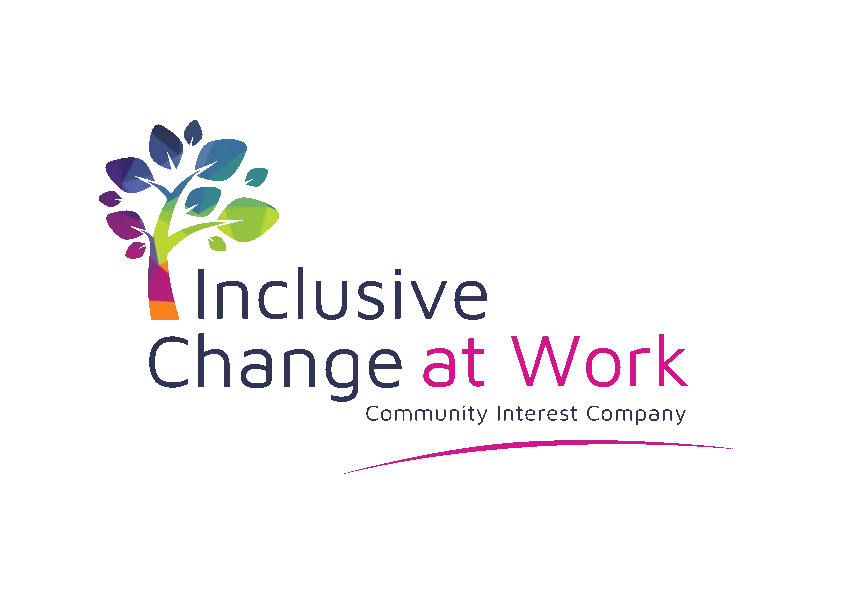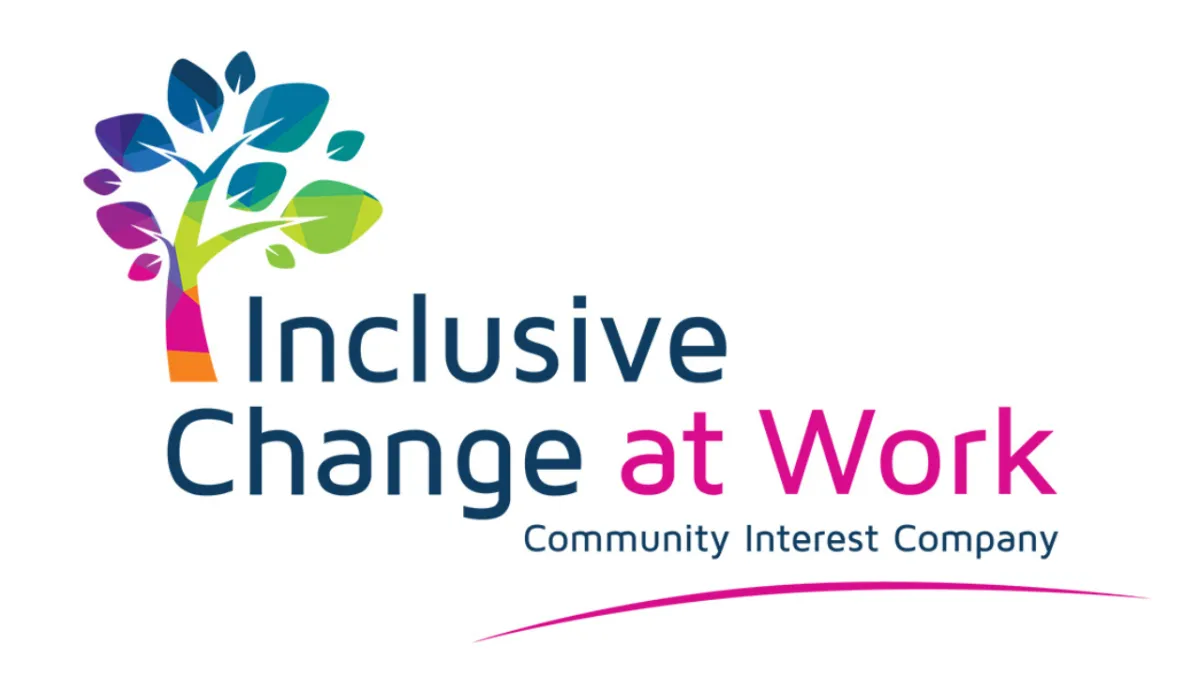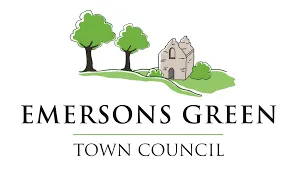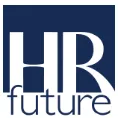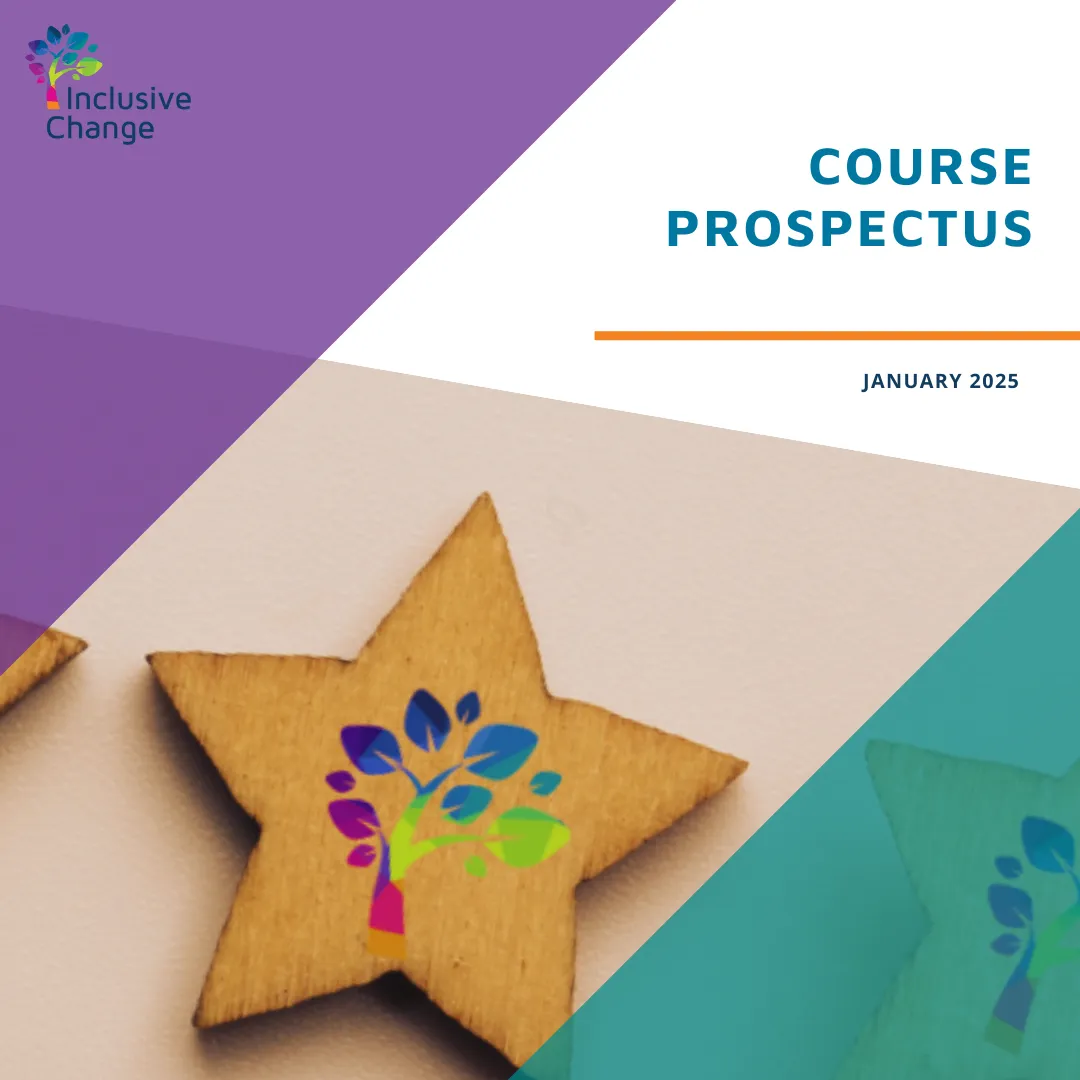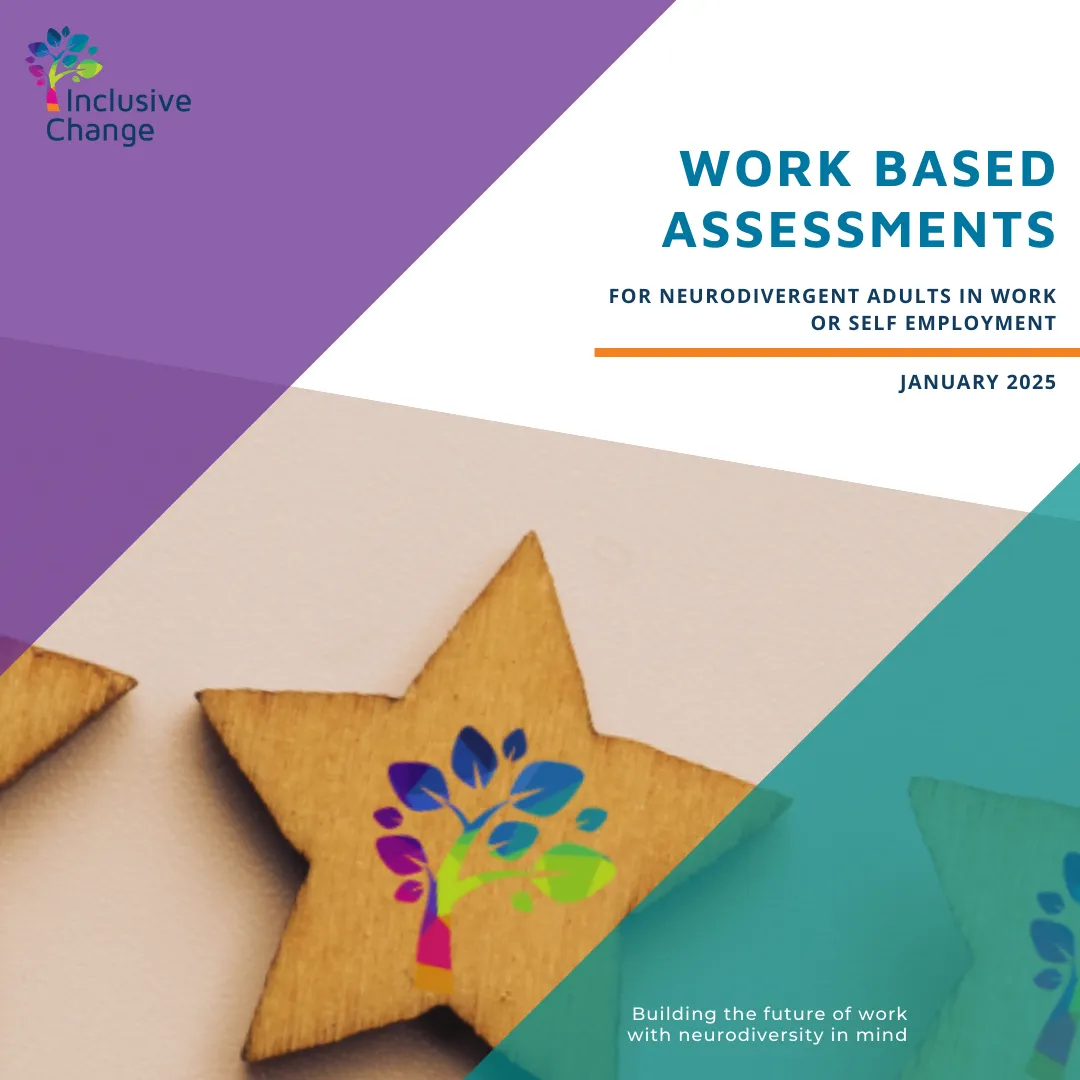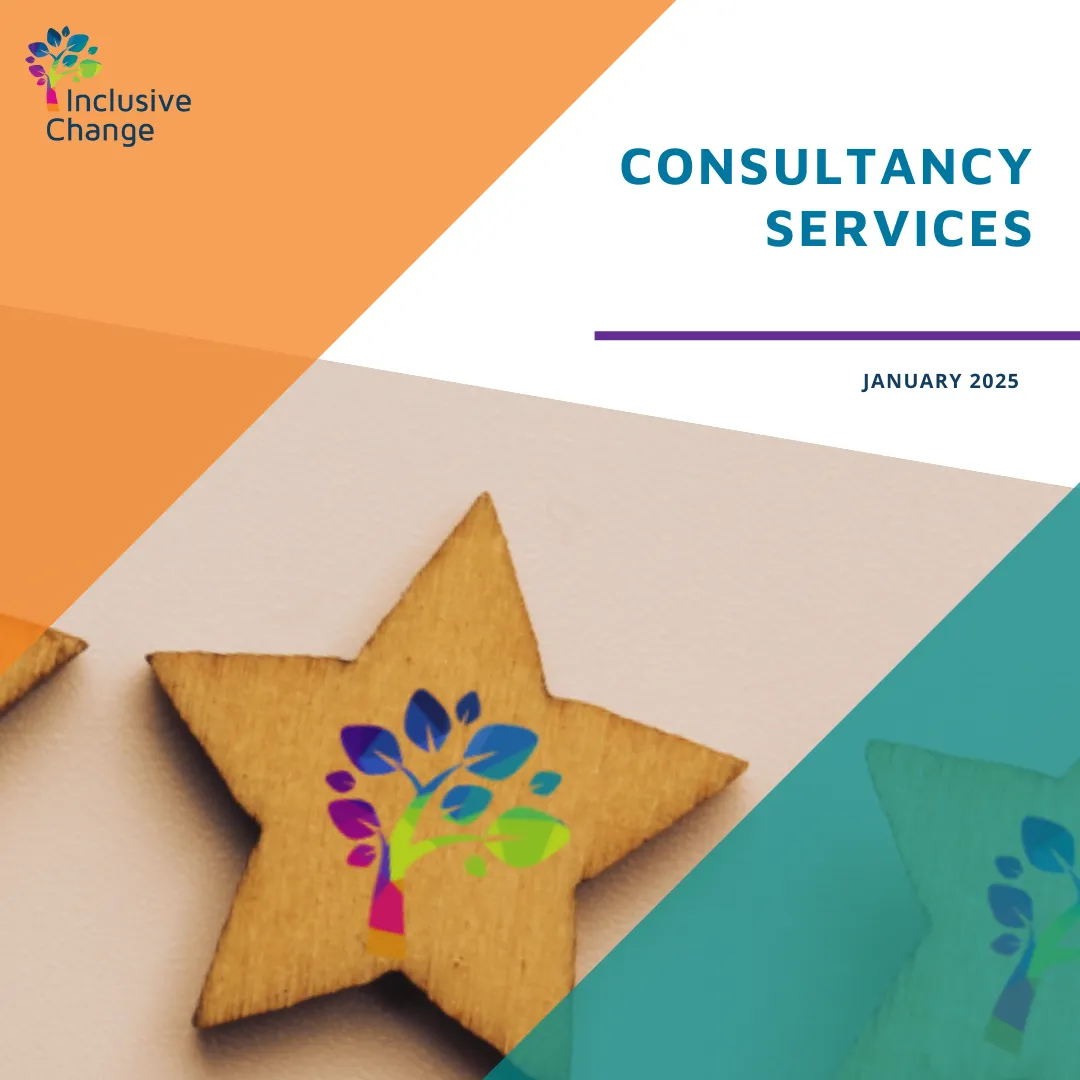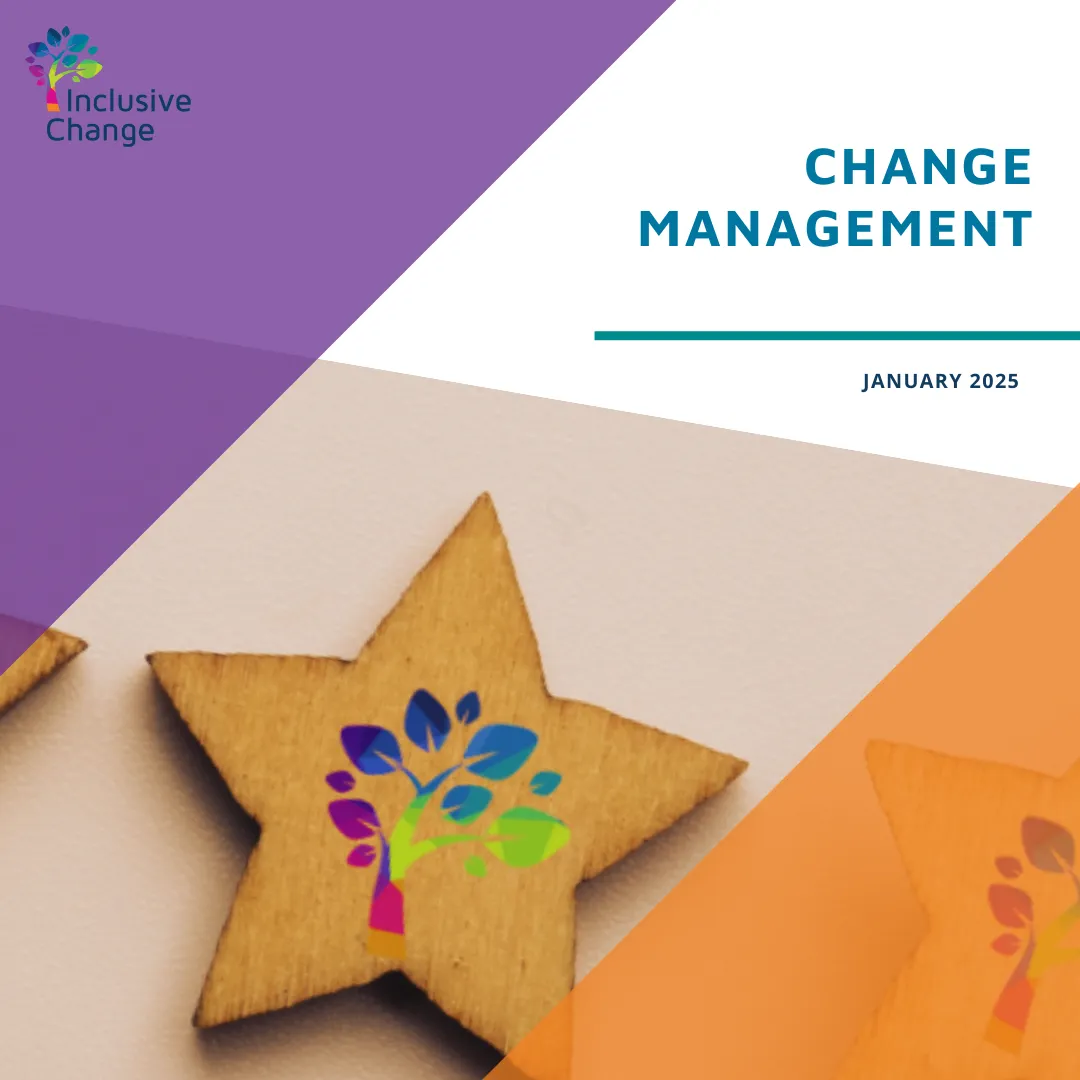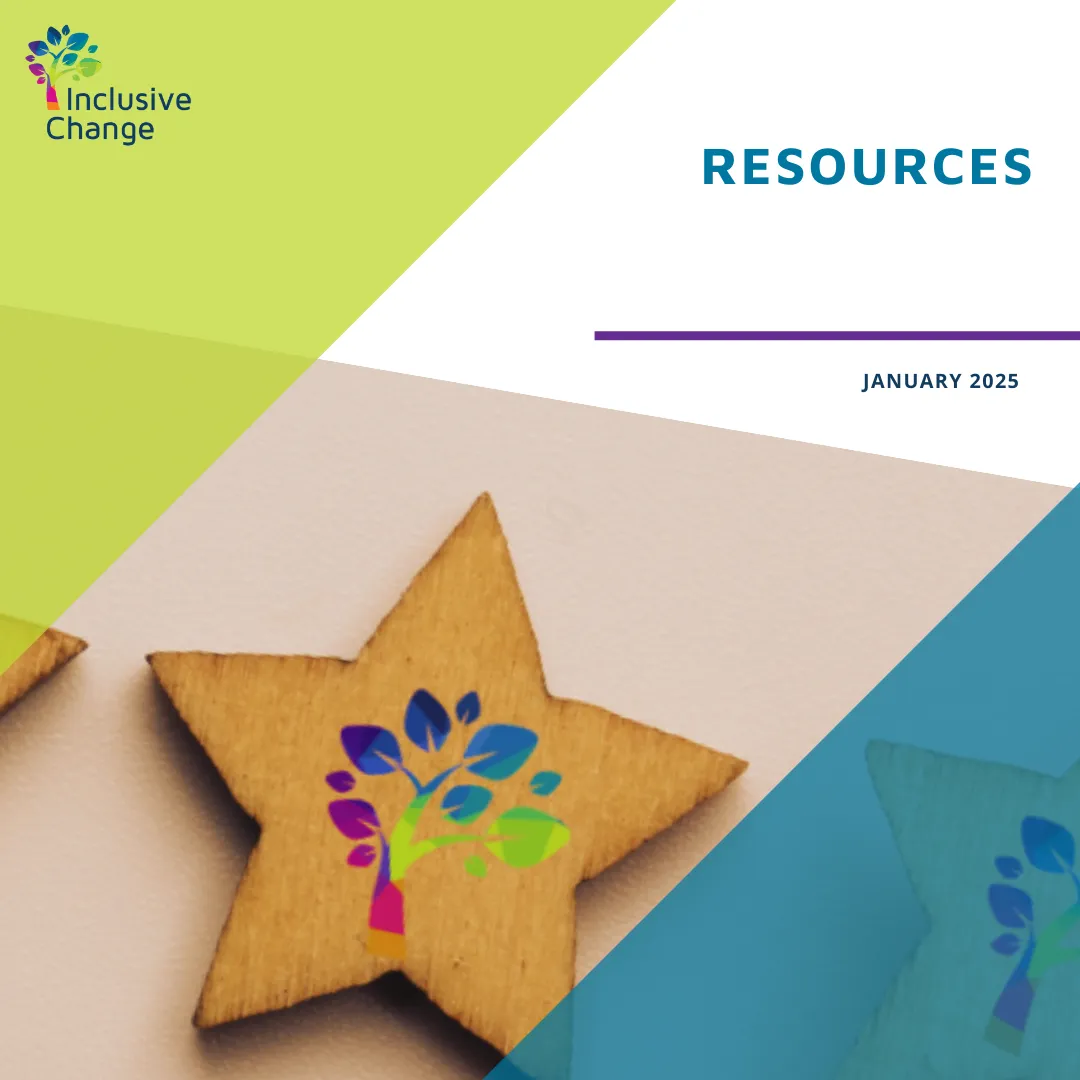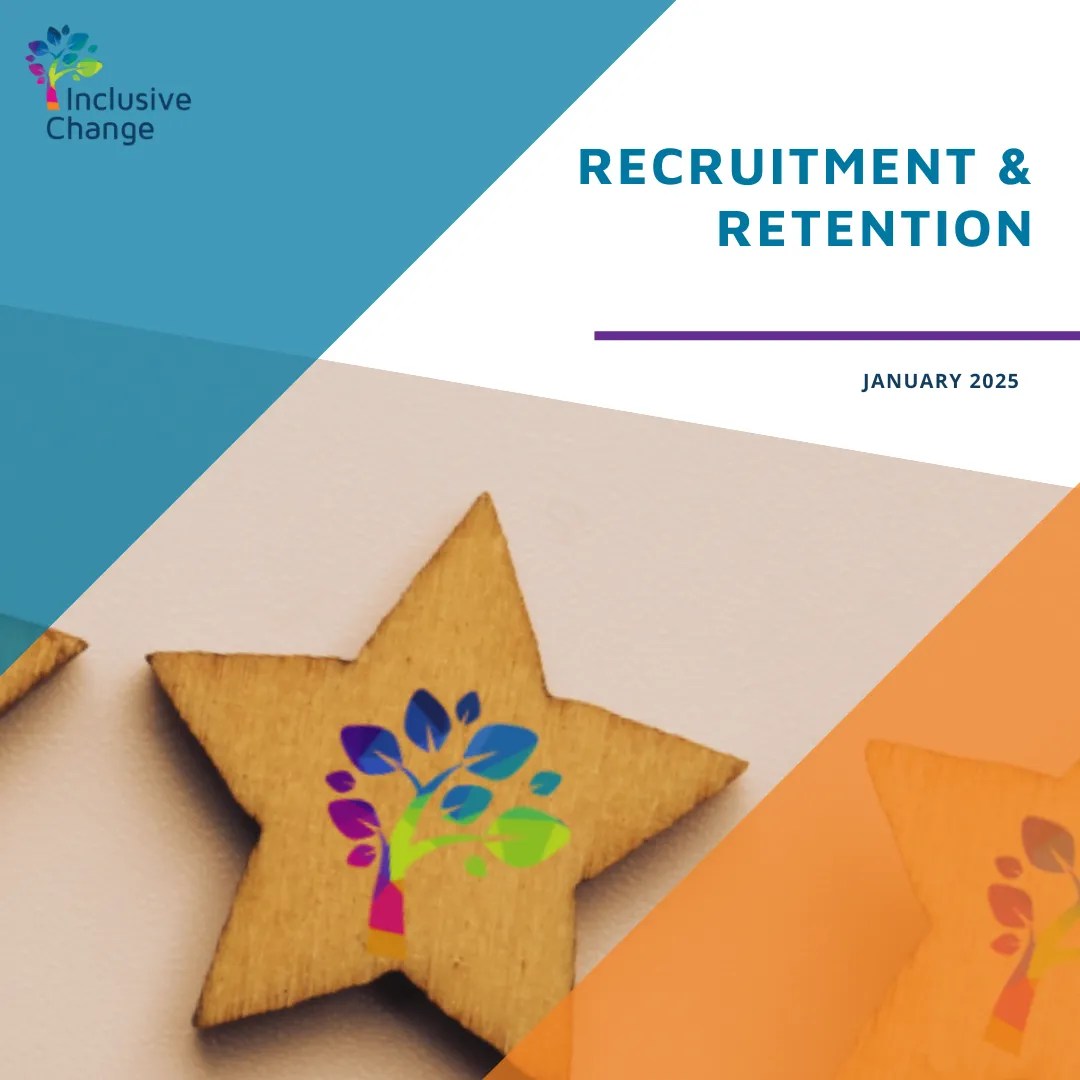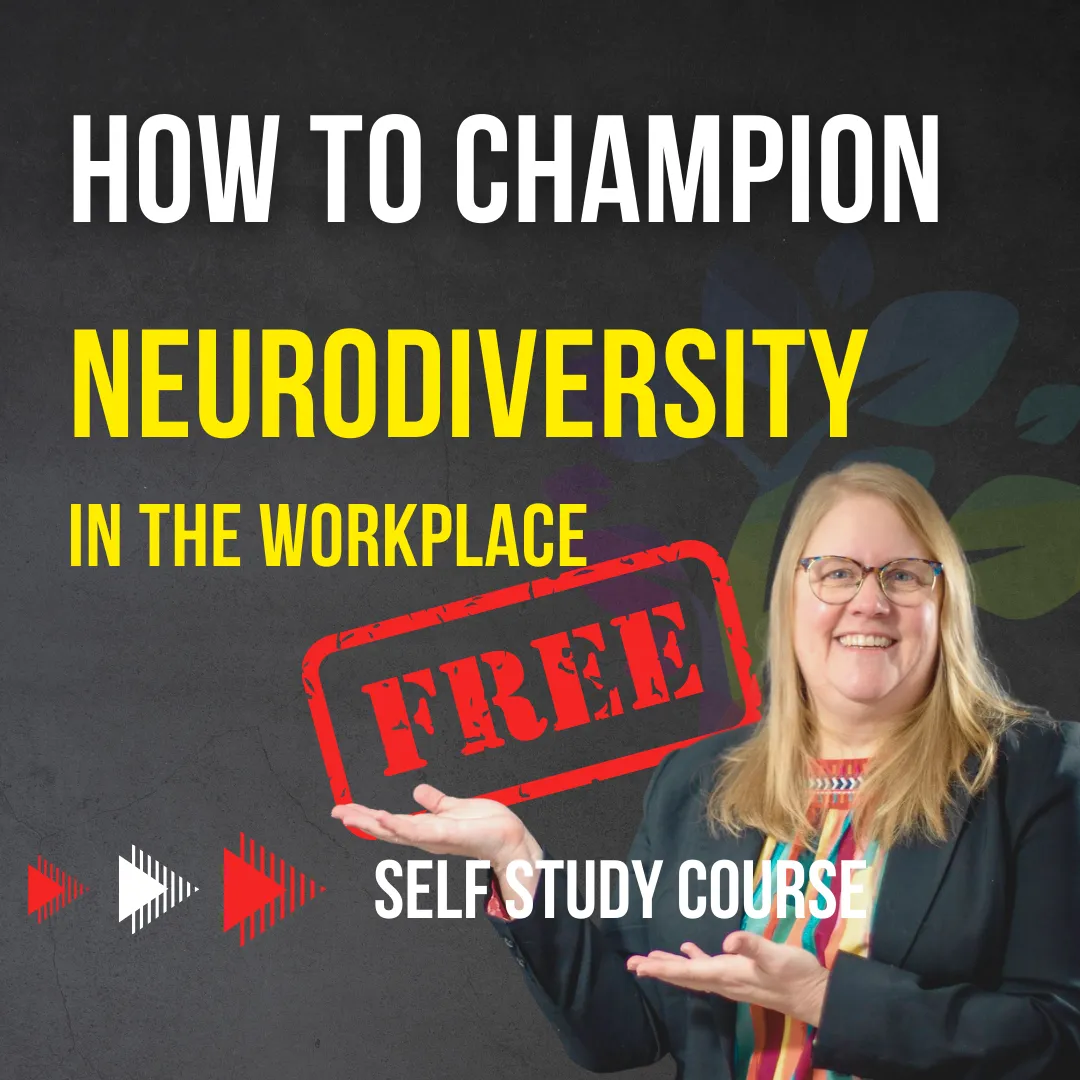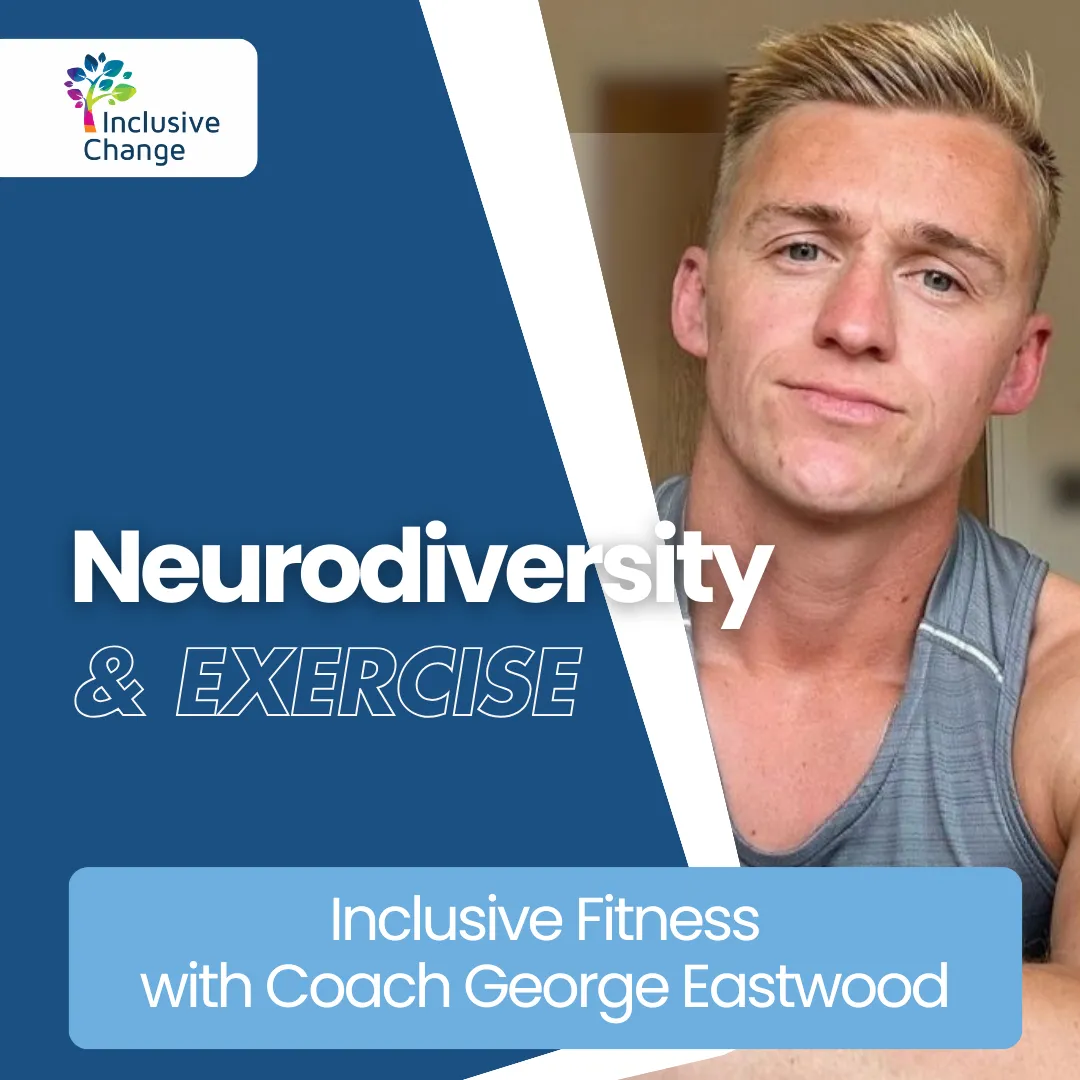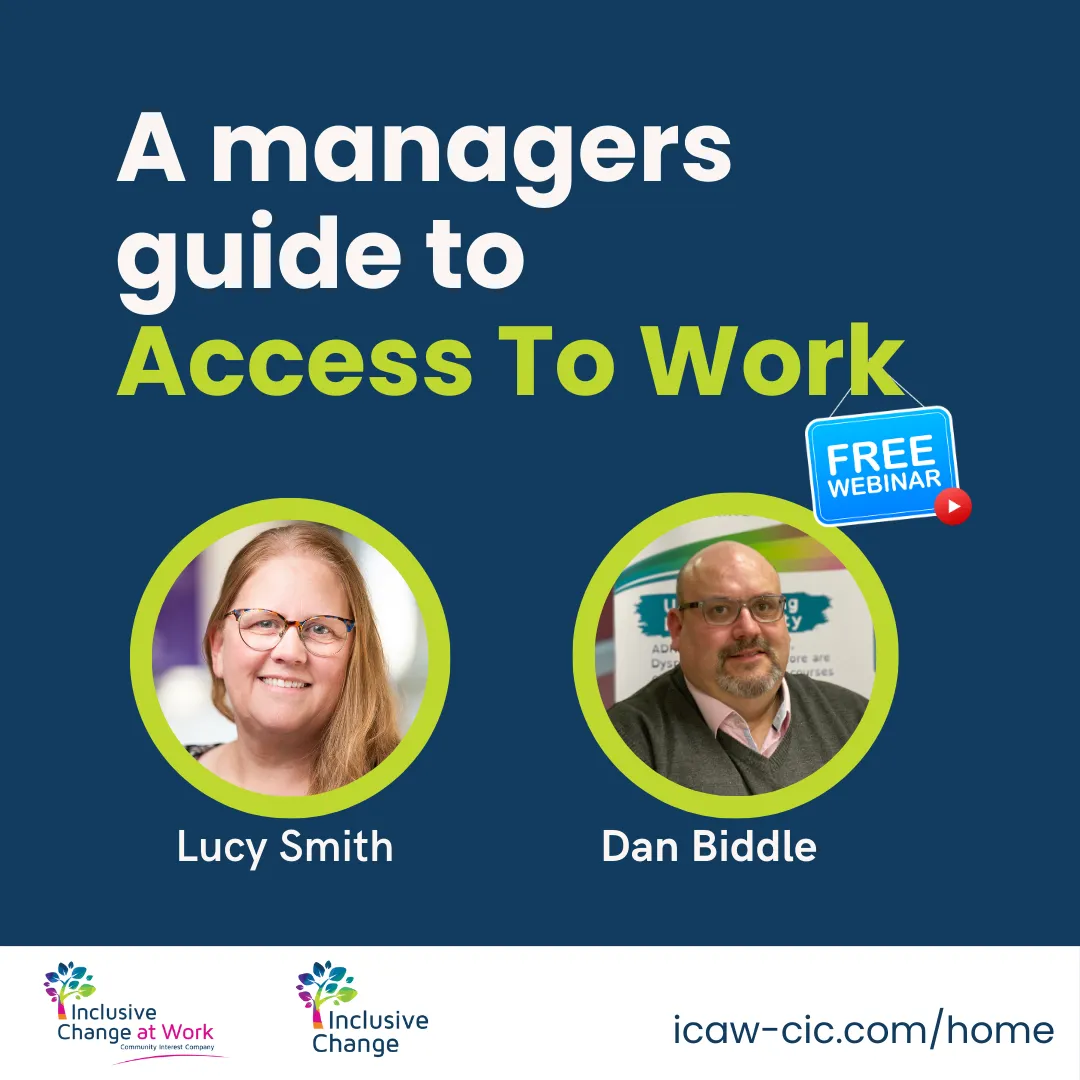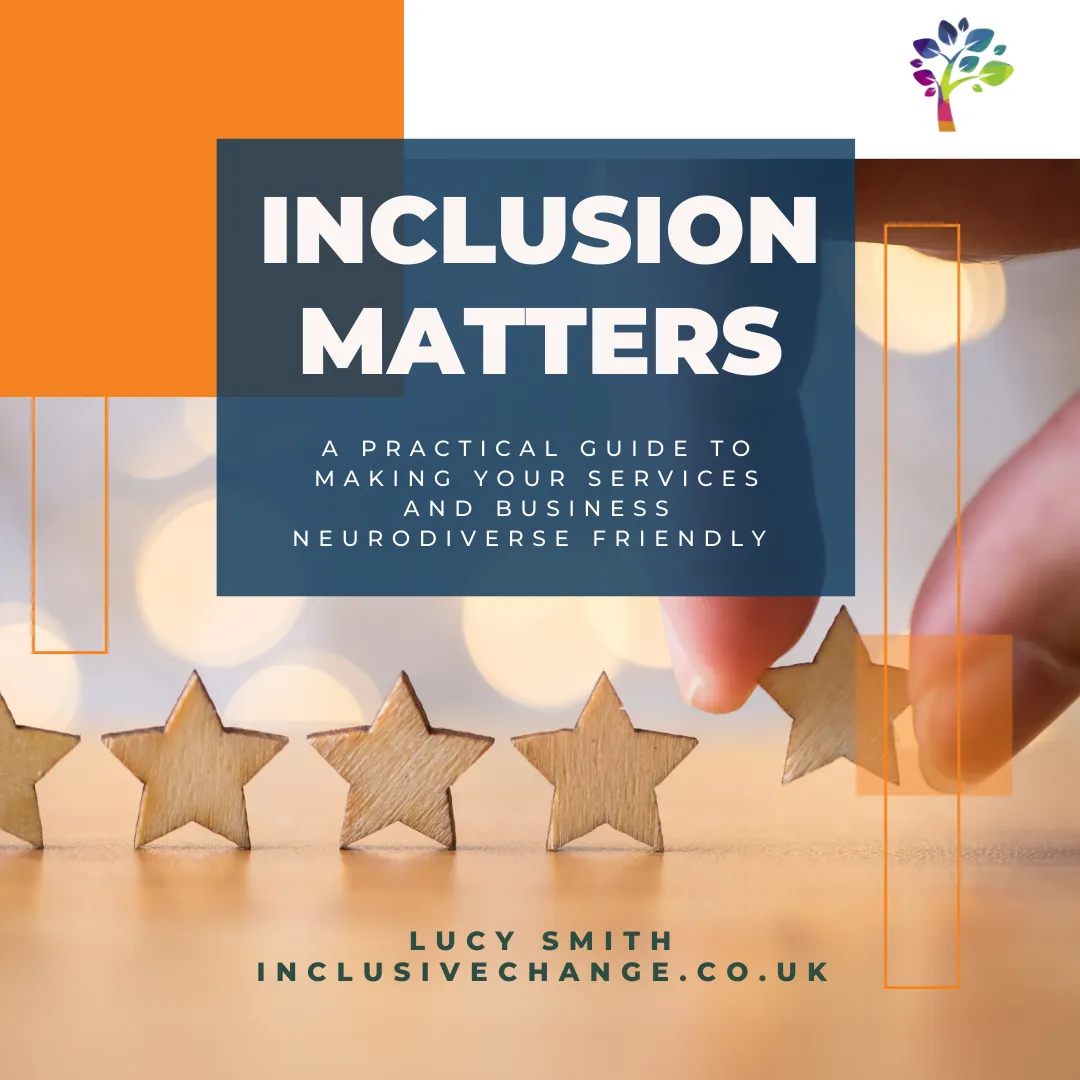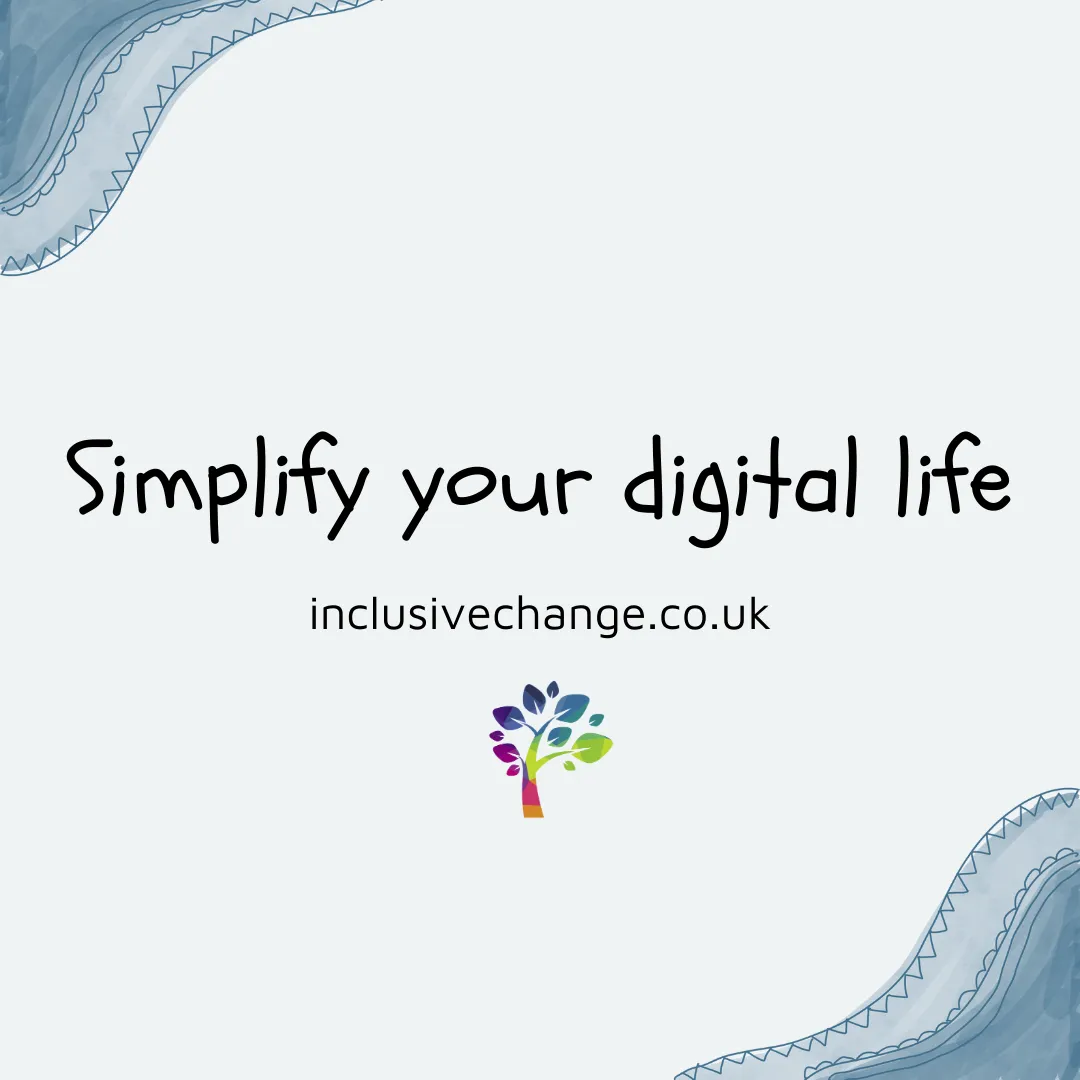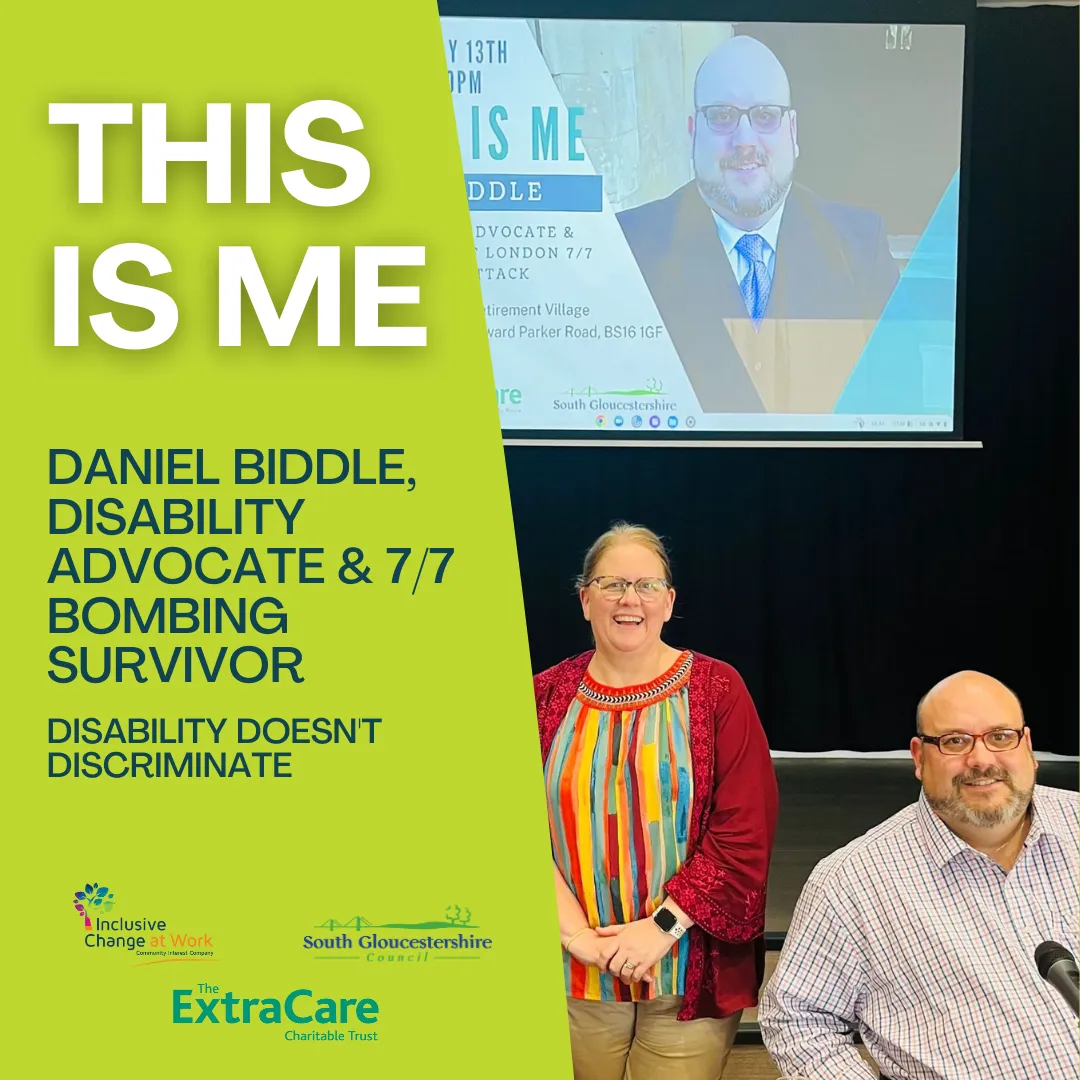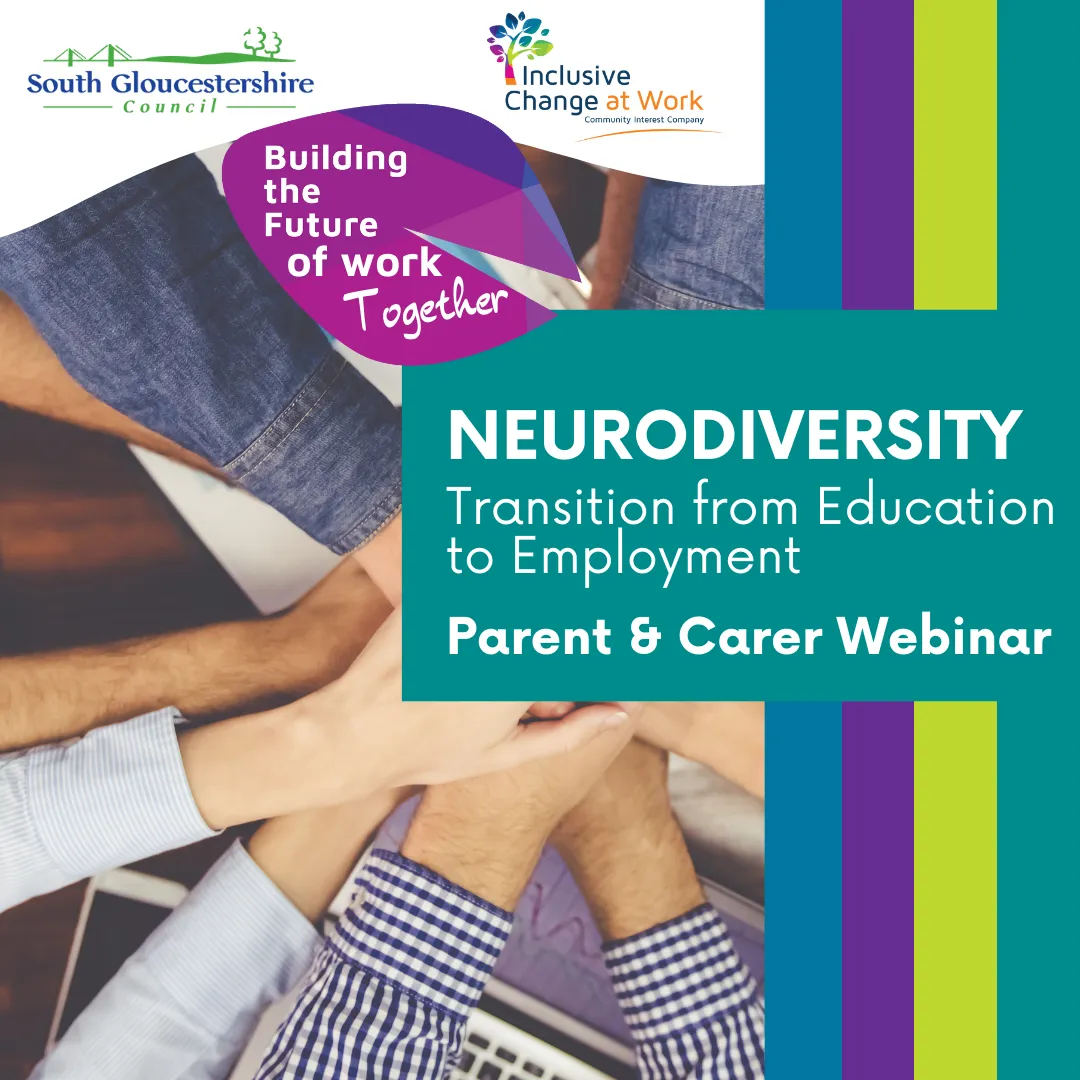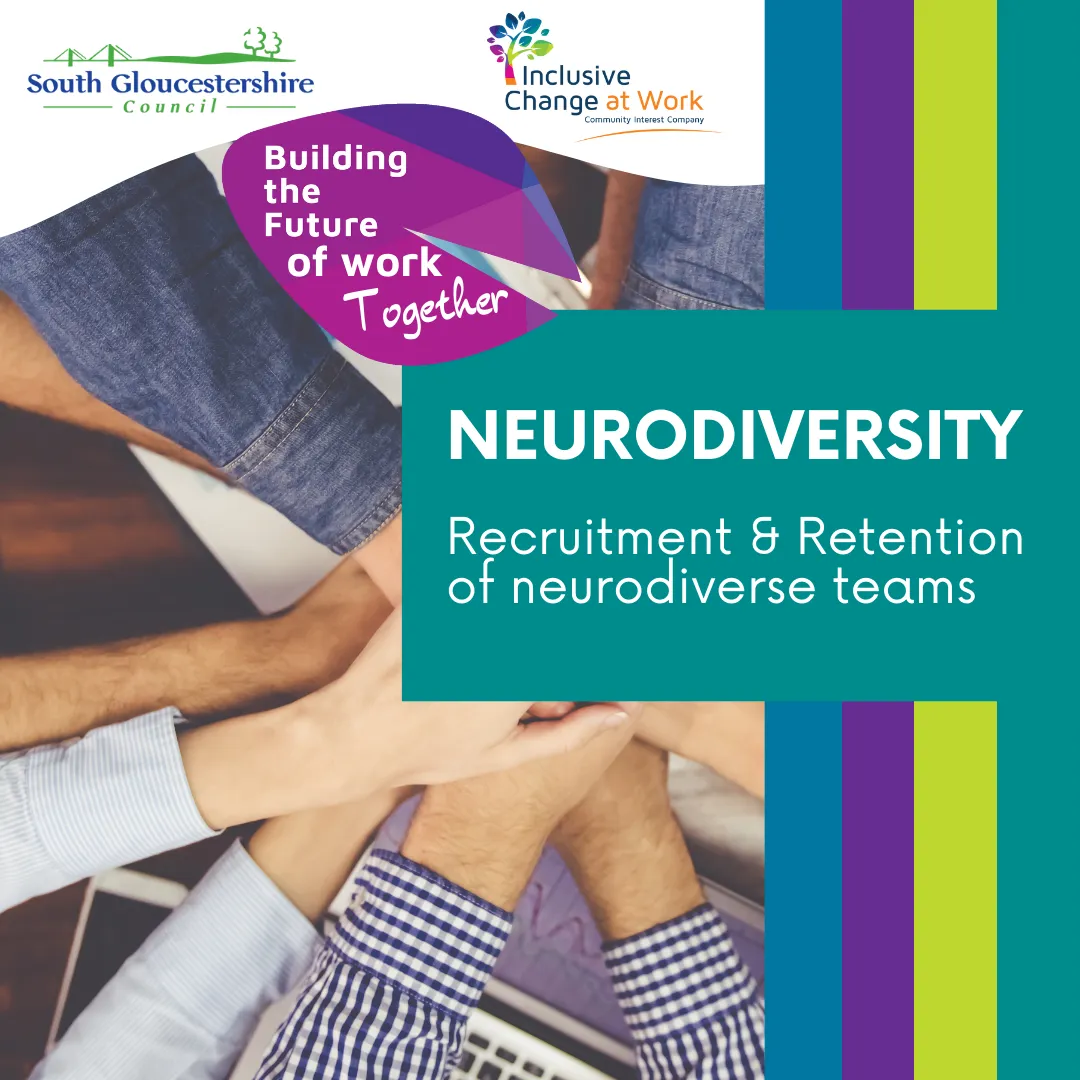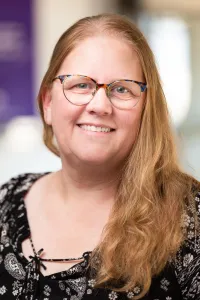Inclusive Change at Work
In the community
We want to thank you for attending our workshops in Emersons Green Village Hall, made possible with funding from Emersons Green Town Council. It has been wonderful to meet so many people and spark meaningful conversations about Inclusion.
We offer a variety of ways to collaborate and support your journey. Be sure to join our mailing list to stay informed about our latest projects, exclusive offers, and exciting initiatives.
To help you take your next steps, we’ve curated this page with valuable resources, insights, and new projects, designed to inspire and empower your conversations about neurodiversity. Dive in, explore, and Keep the Conversation Going!
A Recap of the Slides & Discussions
Let's Talk About Neurodiversity: Building an Inclusive Community Together
Date: 16th January 2025
Speaker: Lucy Smith
Key Takeaways From The Evening
Neurodiversity is Common but Overlooked – 1 in 7 people in the UK are neurodivergent, yet many face barriers in employment and inclusion.
Workplace Challenges Persist – Long assessment wait times, lack of disclosure (76%), and limited employer focus (49%) highlight the need for change.
Inclusive Workplaces Matter – Reasonable adjustments and open discussions help create supportive environments.
Younger Generations are Driving Change – 53% of Gen Z identify as neurodivergent, making inclusion more important than ever.
Action is Key – Safe spaces, advocacy, and meaningful support systems help neurodiverse communities thrive
Supporting Neurodivergent Families
Date: 30th January 2025
Speakers: Lucy Smith & SGPC
Key Takeaways From The Evening
Inclusive Spaces Foster Support – Creating environments where neurodivergent individuals feel safe and valued is essential for meaningful inclusion.
Resilience is Key – Building resilience through learning, coping strategies, and supportive frameworks helps neurodivergent families navigate challenges.
Workplace and Education Accessibility Matters – Reasonable adjustments in schools and workplaces ensure neurodivergent individuals can succeed without unnecessary barriers.
Open Dialogue Encourages Understanding – Safe spaces for discussion help break stigma, allowing neurodivergent individuals and allies to share experiences and seek support.
Ongoing Support and Resources Make a Difference – Access to helpful resources, events, and advocacy networks empowers neurodivergent communities to thrive.
Building the Future of Work With Neurodiversity in Mind
Date: 6th February 2025
Speakers: Lucy Smith & Andy Jackson
Key Takeaways From The Evening
Neuroinclusion is a Business Advantage – Embracing neurodiversity leads to increased innovation, productivity, and employee retention. Yet, many workplaces unintentionally create barriers for neurodivergent employees.
The Social Model of Disability Matters – Disability is not about the individual but the barriers in their environment. Simple workplace adjustments, like sensory-friendly spaces and flexible communication styles, can unlock neurodivergent talent.
Inclusion is Needed at Every Career Stage – From recruitment to promotion, neurodivergent employees face unique challenges. Clear job descriptions, structured onboarding, and strengths-based performance reviews help ensure fairness.
Recruitment & Progression Need Reform – Traditional hiring methods often exclude neurodivergent talent. Companies should prioritize skills-based hiring, alternative application methods, and clear promotion pathways.
Actionable Steps Make a Difference – Businesses should start by reviewing hiring practices, improving workplace accessibility, investing in mentorship, implementing inclusive policies, and increasing diverse representation
Menopause and Neurodiversity
Date: 20th February 2025
Speakers: Kirsty Brown, Fitness for Life, & Lucy Smith
Key Takeaways From The Evening
Menopause Can Intensify Neurodivergent Traits – Changes in hormones can amplify difficulties with memory, focus, sensory sensitivity, emotional regulation, and fatigue, making daily life more challenging.
Dopamine & Cognitive Support Are Crucial – Activities like exercise, music, creative outlets, and structured routines help maintain dopamine levels, while a diet rich in protein, omega-3s, and key micronutrients supports brain function.
Self-Regulation Strategies Help Manage Symptoms – Sensory tools, mindfulness techniques, and cognitive-behavioral strategies can help counteract brain fog, mood swings, and attention difficulties.
Hormonal & Cognitive Support Can Be Beneficial – Hormone Replacement Therapy (HRT) may help some individuals, while structured routines, planners, and reminders aid in managing cognitive challenges.
Community & Environmental Adjustments Matter – Reducing sensory overload, seeking peer support, and creating neuroinclusive workplace environments can improve well-being and productivity for neurodivergent individuals going through menopauseHere's some stuff
Digital Wellbeing for Young People
Date: 6th March 2025
Speakers: Lucy Smith & Emily Chittell
Key Takeaways From The Evening
The Impact of Digital Overuse – Excessive screen time, especially on social media, can negatively affect mental health, as seen in Owen’s experience of using their smartphone to escape emotions but ultimately worsening their mood.
Balancing Digital Consumption – It's important to be mindful of how digital tools influence our emotions and well-being, avoiding over-reliance on social media for coping.
Creating Digital Boundaries – Simplifying digital life can improve mental health, making space for healthier habits and real-world connections.
Support and Adjustments – Neurodivergent individuals may benefit from reasonable adjustments and access-to-work accommodations to create a more balanced digital experience.
Reasonable Adjustments and Access to Work for Neurodiverse Minds
Date: 20th March 2025
Speakers: Lucy Smith & Support Team
Key Takeaways From The Evening
Legal Obligation for Employers: Under the Equality Act 2010, employers must make reasonable adjustments to ensure that disabled employees are not at a substantial disadvantage in the workplace.
Defining Reasonable Adjustments: Adjustments can include changes to the workplace, working arrangements, task execution, or providing necessary support and equipment.
Disclosure and Employer Responsibility: Employees need to disclose their disabilities for employers to act on their duty to make adjustments. Employers are not obligated to assume or act on ambiguous signs of a disability.
Balancing Adjustments with Job Requirements: Adjustments should create fairness without lowering the essential standards of a role. Selection criteria should be inclusive but still maintain job integrity.
The Business and Cultural Benefits: Implementing reasonable adjustments fosters an inclusive workplace, reduces staff turnover, and leads to broader innovations that benefit all employees
We would love to hear your feedback about the events, please follow the link on the right to go to our short, 10 questions survey to help us improve our future workshops
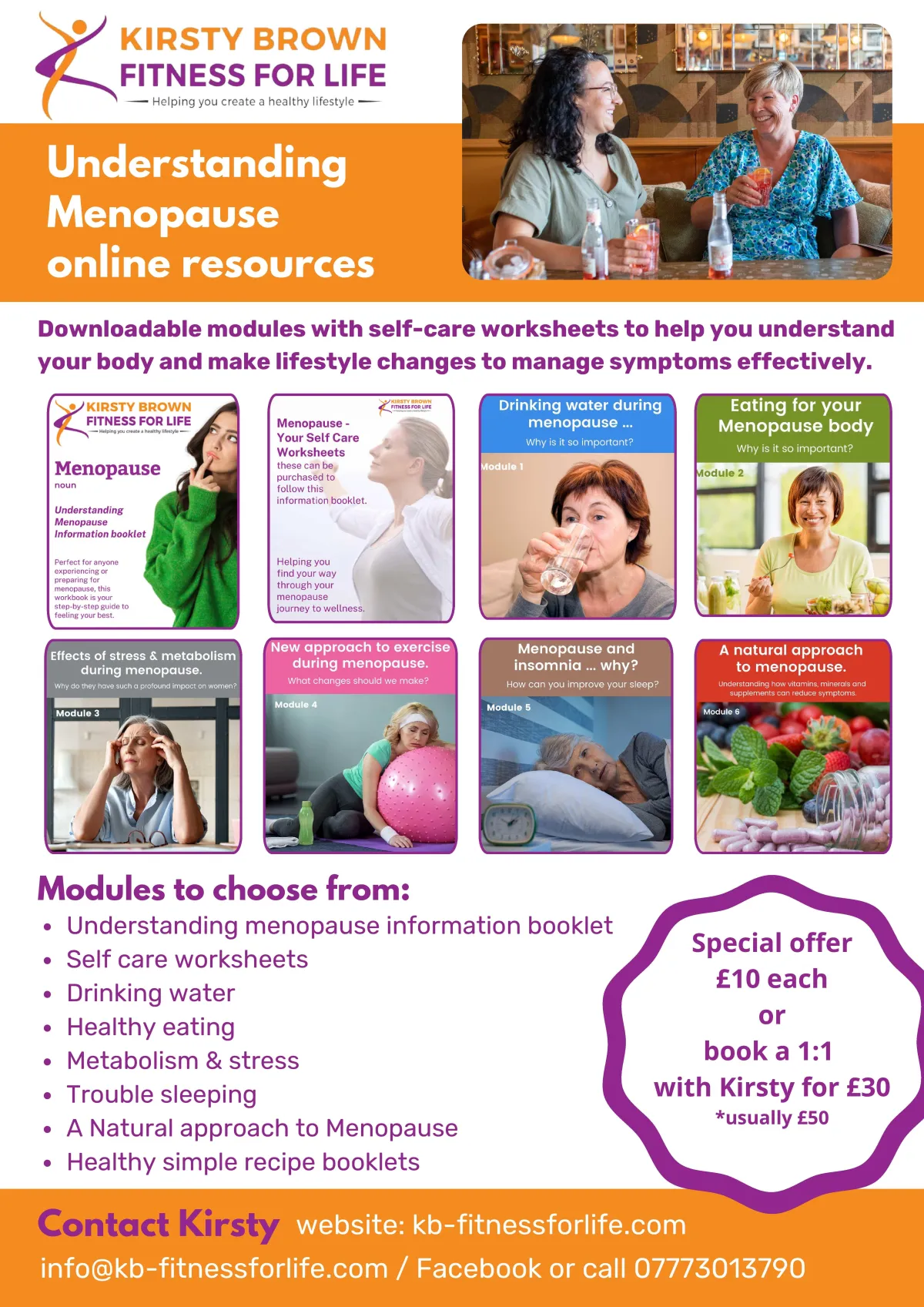
🎉 Neurodiversity Celebration Week 🎉
17th - 23rd March 2025
What is it?
Neurodiversity Celebration Week is a worldwide initiative that challenges stereotypes and misconceptions about neurological differences. It aims to transform how neurodivergent individuals are perceived and supported by providing schools, universities, organisations, and others around the world with the opportunity to recognise the many skills and talents of neurodivergent individuals, while creating more inclusive and equitable cultures that celebrate differences and empower every individual.
How did it start?
“I founded Neurodiversity Celebration Week in 2018 because I wanted to change the way learning differences are perceived. As a teenager who is autistic and has ADHD, dyslexia, and dyspraxia, my experience has been that people often focus on the challenges of neurological diversity. I wanted to change the narrative and create a balanced view which focuses equally on our talents and strengths.”
- Siena Castellon, Founder
Get involvolved!
Use the button provided to find out how you can get involved, and register your details for this years events.
Recommended Groups and Services
Articles & Reports
30% More Productive: The ROI of a neurodiverse workforce - 2023
New data suggests that 15% to 20%
of the population may be neurodivergent – up from estimates of 5% to 10% just five years ago. This shift underscores the critical need for employers to broaden the horizons of their diversity, equity and inclusion (DEI) efforts to encompass neuro-inclusion
Half of neurodivergent employees miss work due to lack of support - March 2024
Half of neurodivergent employees have taken time off work due to their neurodivergence, a 5% rise from last year, according to City & Guilds’ Neurodiversity Index. The report also found that 36% received no workplace support, and 18% didn’t know where to seek help.
New Survey by The Harris Poll Reveals Workplace Stigma for Neurodivergent Employees - May 2024
Understood.org, a leading nonprofit empowering more than 70 million neurodivergent people who have learning and thinking differences, such as ADHD and dyslexia, today announced the results of a Harris Poll of over 2,000 U.S. adults ages 18+. The poll shines a light on the challenges and opportunities facing people with learning and thinking differences, such as ADHD, dyslexia, or dyscalculia, in the workplace.

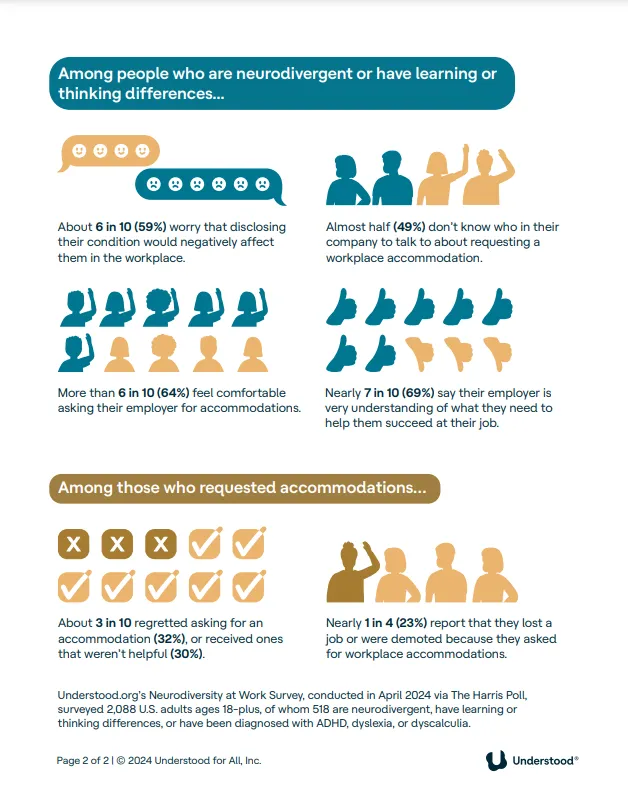
CIPD Neuroinclusion at work report 2024
The reality of neurodiversity means that every interaction at work takes place between people with different brains – yet, typically, very few organisations are thinking about neurodiversity or neuroinclusion. This represents a significant missed opportunity for organisations looking to address their key talent priorities at the same time as addressing inequalities at work faced by neurodivergent people
Meet Your Hosts and Expert
Speakers

Lucy Smith
Lucy is the founder of Inclusive Change and Inclusive Change at Work CIC. She has lived experience of neurodiversity and has been working in the area of neurodiversity for 6 years. Lucy combines a career in change management in internationally renowned organisations with experience in education to create thoughtful and inspiring training and consultancy services.
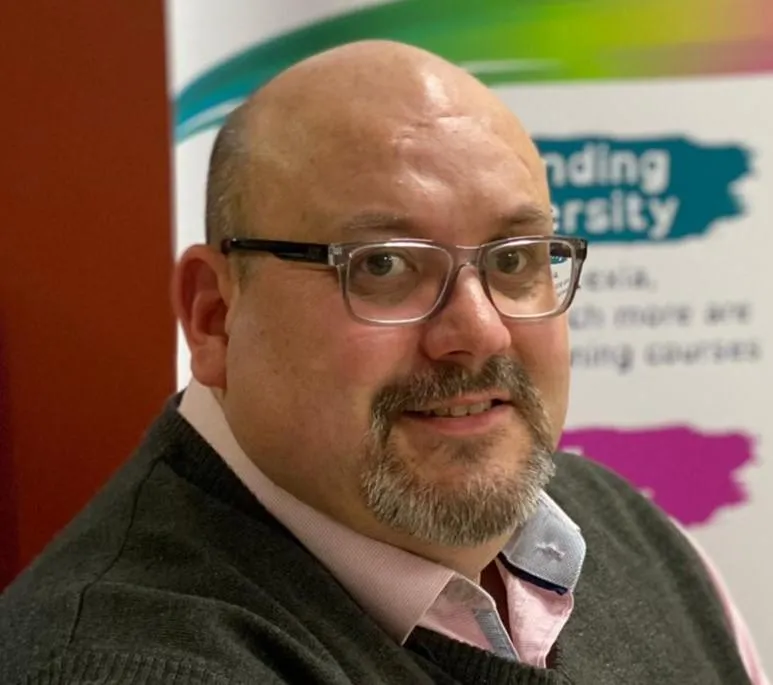
Daniel Biddle
Daniel is a highly experienced accessibility consultant with extensive experience of disability. Daniel has particular expertise in acquired disability, including acquired neurodiversity. He established the National Disability Employment & Advisory Service in 2022 and focuses on supporting neurodivergent young people & adults into employment.
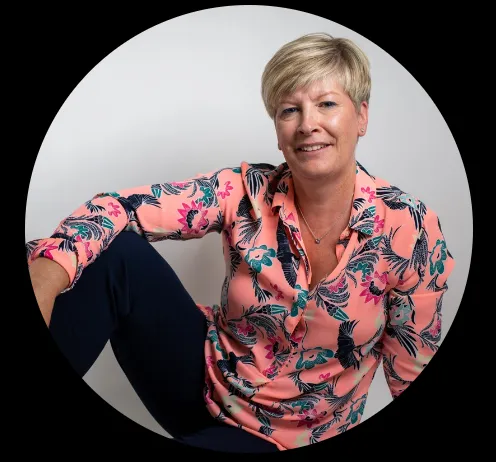
Kirsty Brown
Kirsty is a proactive, self-motivated individual with managerial experience in motivating teams and providing exemplary service. As a personal trainer and women's health coach, I use an empathetic approach to set and monitor achievable goals, adapting strategies to support clients through life's challenges. My expertise in menopause coaching includes workshops that empower women to confidently make lifestyle changes and navigate difficult times.

Vicky Henderson
Vicky is a multi-award-winning coach, mentor, speaker and trainer. She specialises in working with young people (11-24yrs) helping them grow in confidence, feel happy and generate hope and excitement for a better future.
In addition to working with young people, Vicky also works with parents, schools and employers, to ensure that all young people are afforded the support and help they need to thrive.

Andy Jackson
Andy is a Non-Executive Director of Inclusive Change at Work CIC, as well as an entrepreneurial and leadership coach and a dedicated advocate for neurodivergent individuals.
As a parent to a young adult navigating life with undiagnosed neurodivergence, Andy brings both professional expertise and personal insight to their work.
A skilled coach, facilitator, and trainer, Andy is passionate about enhancing organisational performance and supporting teams to thrive.
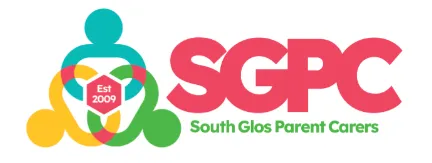
South Glos Parent Carers
South Glos Parent Carers (SGPC), the local parent carer forum that represents & supports parent carers of children and young people with Special Education Needs and Disabilities (SEND) in South Gloucestershire. Driven by a desire to make a difference for every SEND family in South Gloucestershire, SGPC attend meetings across the education, health and social care sectors to ensure service providers understand the challenges families face, so that positive changes can be made. SGPC also offer support to parent carers, via online and drop-in support sessions as well as workshops on a range of SEND topics. The SGPC team are all parent carers themselves, so they truly understand the SEND journey & challenges. From their personal experiences & those of their community, they have gained valuable insight, information and a wealth of SEND knowledge.
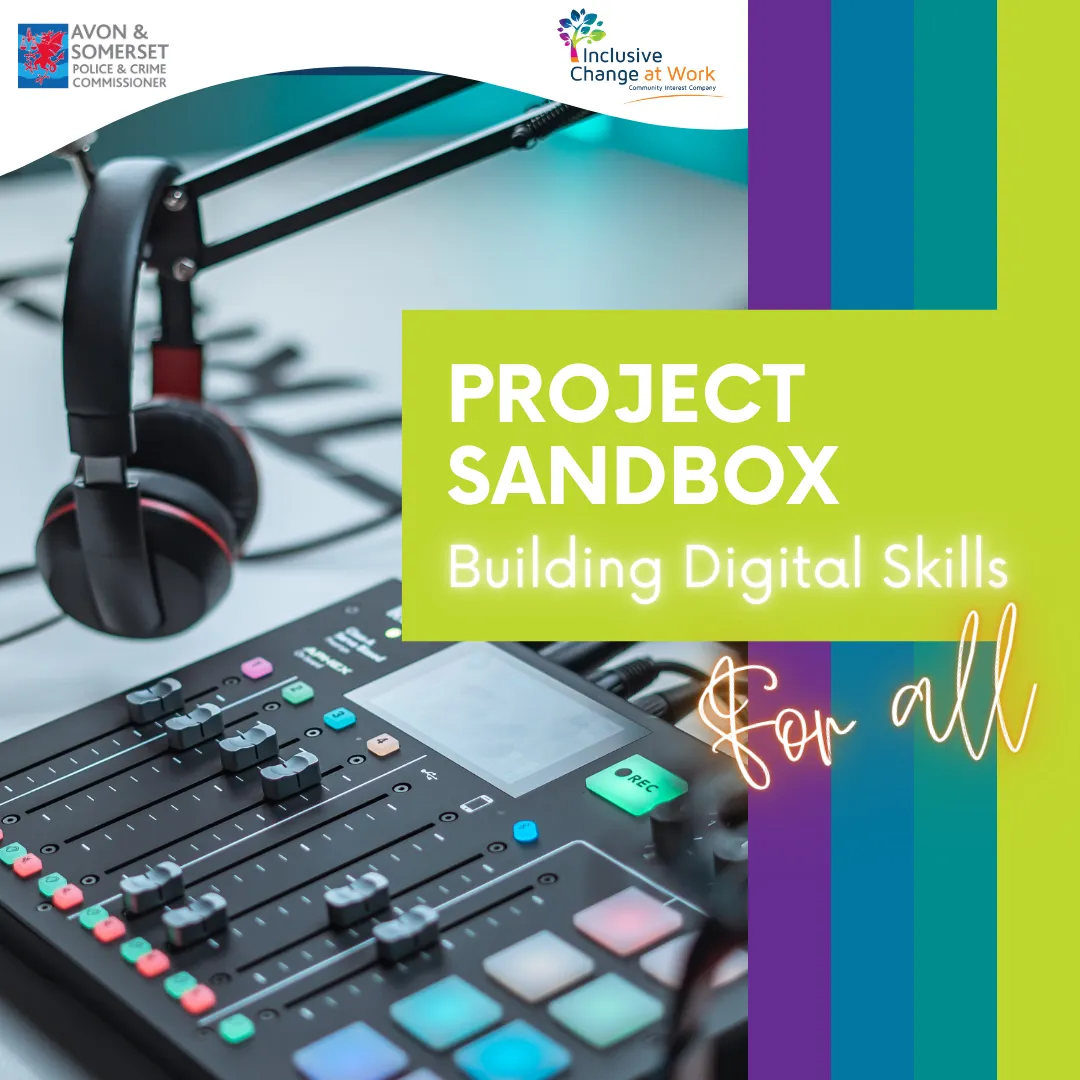
Discover Project Sandbox: Shaping a Safer Digital Future
Inclusive Change at Work CIC proudly presents
Project Sandbox, a ground-breaking initiative designed to champion digital safety and disability inclusion.
In collaboration with the Avon & Somerset Police & Crime Commissioner, we’re creating an engaging series of podcast and radio episodes that dive deep into building safer digital spaces for disabled and neurodivergent individuals.
We invite you to be part of this important conversation and join us in driving meaningful change.
Stay tuned, get involved, and let’s make the digital world a place for everyone.
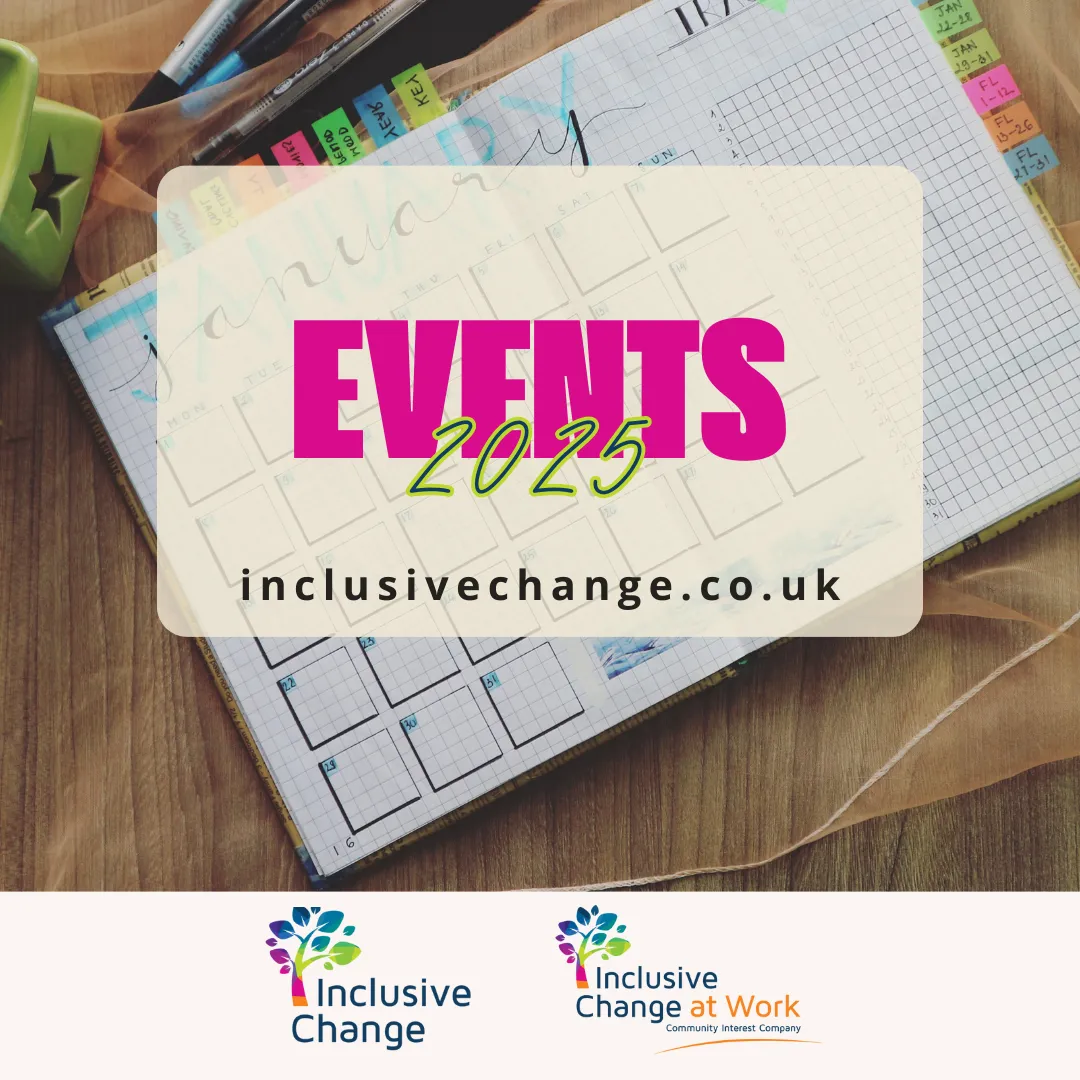
March 2025
17th - 23rd - ND Celebration Week - All over the UK & Online
18th - Creating Inclusive Workspaces - Online
20th - Reasonable Adjustments and Access to Work for Neurodiverse Minds - Emersons Green
31st - Networking Breakfast - Old Down Estate
April 2025
2nd - World Autism Day - United Nations Member States
Free Resources - Guides, Webinars & Courses
Check Out Our Latest Blog Posts

Discovering myself through my child's ADHD diagnosis:
Discovering myself through my child's ADHD diagnosis: A journey of self-recognition and understanding
When my child was diagnosed with ADHD 2 years ago, it came as a mix of emotions. Relief, concern, and a flood of questions, but one feeling began to grow that I hadn’t anticipated: a strange, dawning recognition. As I started to learn more about ADHD, it became a new journey to understanding myself.
Recognising the Patterns: Early signs of a shared experience
At first, my focus was solely on my child - finding ways to support them at home and school, trying all sorts of strategies, and navigating the countless articles and shorts popping up on my phone! But as I dived deeper into what ADHD really is, I began noticing startling parallels between the symptoms and some of my own long-standing traits and behaviours.
Difficulty with focus and attention? Check.
Struggles with procrastination? Check.
Restlessness. Check.
Poor time management? Check.
Speaking before thinking? Every day.
Feeling like I need to be doing something else? Constantly.
Fighting the urge to delay and fidget? Daily battle!
It wasn’t just that I could relate to some of what my child was going through; it was that these traits were so embedded in my life that I had stopped seeing them as anything other than 'me'. It wasn’t until my child’s diagnosis that I realised how much I had adapted my life, made choices, avoided certain situations and how this wasn’t necessarily the 'norm' for everyone else.
Discovering my lifelong relationship with ADHD
Looking back, the signs were always there, hiding in plain sight due to lack of understanding and knowledge. School reports that repeat ‘talks too much, is very capable but needs to maintain focus, needs to pay more attention in class’. My endless to-do lists that never get completed, that just got longer and I avoid! The random hyperfocus that takes over my day, the inability to make decisions, the brain fog and the clumsiness - I didn't do it on purpose! The self doubt, the lack of confidence, the burn out...
Like many adults with undiagnosed ADHD, I made life choices over the years and have built coping mechanisms to help me function. But the effort it takes to maintain these systems is exhausting. In an effort to combat constant exhaustion, I’ve experimented with countless strategies - adjusting my diet, taking vitamins, exercising, and even cutting back on activities.
I always thought it was a health concern but now I recognise it's an effect of ADHD. I didn’t even realise how much mental energy I was spending just trying to keep up with daily life until I began learning more about ADHD and realised how differently neurotypical people process the world.
What had always seemed like character flaws or personal failings - my tendency to interrupt, my constant battle with motivation, inability to see a plan through, lack of self confidence - suddenly I had an explanation and better understanding of why? ADHD isn't an excuse, but it provides clarification and a reason, and that in itself was empowering.
Pursuing my own diagnosis: A journey of self-understanding
The more I learn, the more I couldn’t ignore the possibility that ADHD wasn’t just something my child was experiencing. It was something I had been living with too.
I hesitated to seek a diagnosis at first. After all, I had managed so far. But then I realised that 'managing' wasn’t thriving and this could be the gateway to acceptance, happiness and achievement. There were aspects of my life - relationships, work, self confidence, that I could have been handling differently had I understood my brain better. My child’s diagnosis had sparked a new desire for self-awareness, not only for them but for me and I owed it to myself to see where that journey would lead.
I have finally begun the diagnosis process and in true ADHD style, it took me a while to commit, I lost the forms and I had to redo them. It’s been both nerve-wracking, frustrating and liberating to talk through my experiences and have them acknowledged. While I’m still waiting for the official results, the process so far has been incredibly validating. Even without a formal diagnosis, which I know I don't NEED, I feel like I’m finally starting to understand the chaos of my mind, emotions, and behaviours that have shaped my life.
Self-Reflection: Redefining myself with compassion
As I navigate the process of seeking a diagnosis, I’ve experienced a range of emotions. There’s been a sense of anticipation and excitement, but also moments of reflection and sadness. I often wonder how different my life might have been if I had recognised these traits earlier. How many opportunities did I give up on, experiences missed out on.
Though I haven’t received a formal diagnosis yet, this journey has already encouraged me to approach myself with more compassion. For years, I carried guilt over the way I am. My inability to keep up with everyday demands, to process and retain information, my instability and lack of motivation. Now, I’m starting to view these challenges differently. Maybe they aren’t personal failings, but instead, part of how my brain works.
To support this newfound understanding, I have started working with a coach. Coaching has been transformative for me, providing practical tools and strategies tailored to my needs. My coach helps me identify my strengths and weaknesses, enabling me to create a personalised plan that aligns with my unique way of thinking and processing information, along with ADHD coping strategies.
This growing awareness, combined with coaching, has helped me begin unlearning the negative self-talk I’ve internalised over the years. While I’m still in the process of seeking answers, I’ve started to embrace a more sustainable way of managing my life. I’m learning to structure my days in ways that suit my brain rather than exhausting myself trying to meet unrealistic expectations.
This shift in perspective is allowing me to move forward with more awareness and understanding. With each session, I feel more equipped to navigate the complexities of my experiences, and I’m beginning to see that seeking support is not a sign of weakness but a step toward self-discovery and empowerment.
So, here I am - still learning, still growing, and still figuring things out, for me and my child. And that’s a gift I didn’t expect from their diagnosis, but one I’m grateful to have received.
Inclusive Change At Work CiC
Bradbury House
Wheatfield Road
Bradley Stoke
Bristol
BS32 9DB
Companies House: 13271923
ICO registration: ZZB293922
UK register of Learning providers
UKRLP: 10090653
